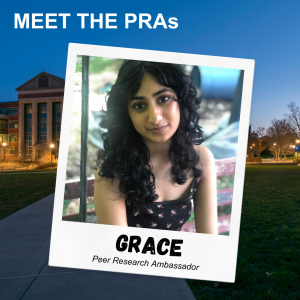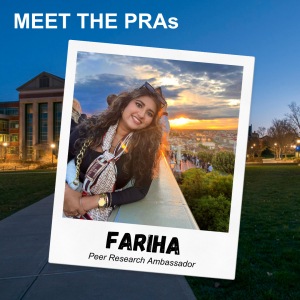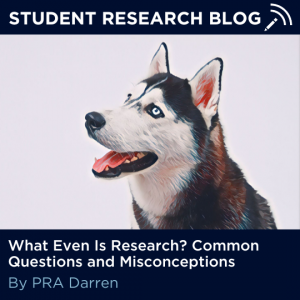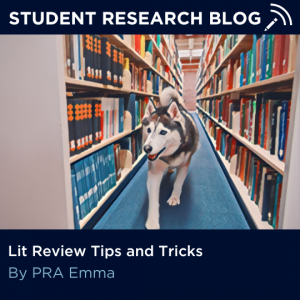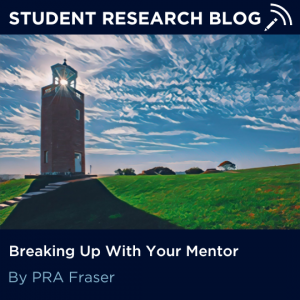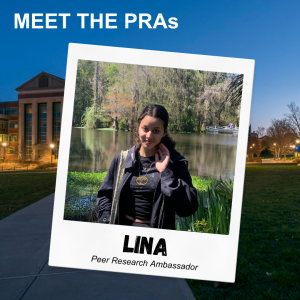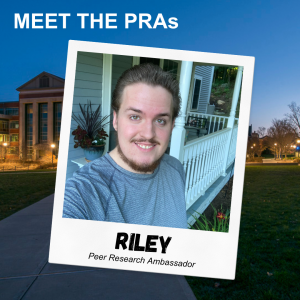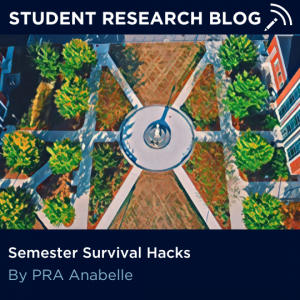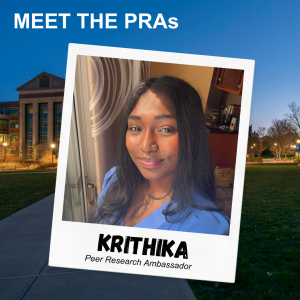Meet Darren Lee ’25, an OUR Peer Research Ambassador (PRA) majoring in Molecular & Cell Biology.
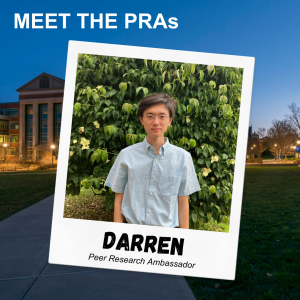 What is the focus of your research?
What is the focus of your research?
Broadly, I’ve been interested in studying the interactions between organisms and their microbial communities. During my first year, I worked on a Holster Scholar project with Dr. Jonathan Klassen from MCB on fungus-growing ants, which cultivate a co-evolved fungus as their main food source. Work from the lab showed that the ants responded to chemical signals from pathogens, so we wanted to understand how this response was communicated between the ants and fungus. For my project, I evaluated how the ants’ behavior was affected by whether the fungus was alive or dead.
I’ve also worked in Dr. Joerg Graf’s lab, which studies the bacterial community of the European medicinal leech. The leech is an interesting model system since its digestive tract contains a relatively simple microbial community. We experimentally evolved Aeromonas veronii (one of the dominant community members) to look for genetic changes that might confer an advantage in colonizing the leech, then made a mutant A. veronii with the changes we observed to see if they affected the bacterium’s ability to colonize.
Since this summer, I’ve been in Dr. Yanjiao Zhou’s lab at UConn Health where I’ve done some data analysis for several ongoing studies in the lab. So far, I’ve worked on a study looking at a walnut diet in mice—walnuts have a unique nutrient profile that’s been linked to several positive health effects, so we were interested to see if long-term supplementation would lead to lasting changes in the mouse gut microbiome and metabolism.
Why did you get involved in research?
I’ve been a gardener for the longest time, and this has really made me appreciate the idea that there’s a whole world beneath our feet that’s intricately linked with the plants and animals that we can see. When I came to UConn, I was interested in doing microbiology research to pursue this curiosity, and I would say that although it’s taken me in an unexpected direction, I’ve had a really enriching experience so far! Continue reading
